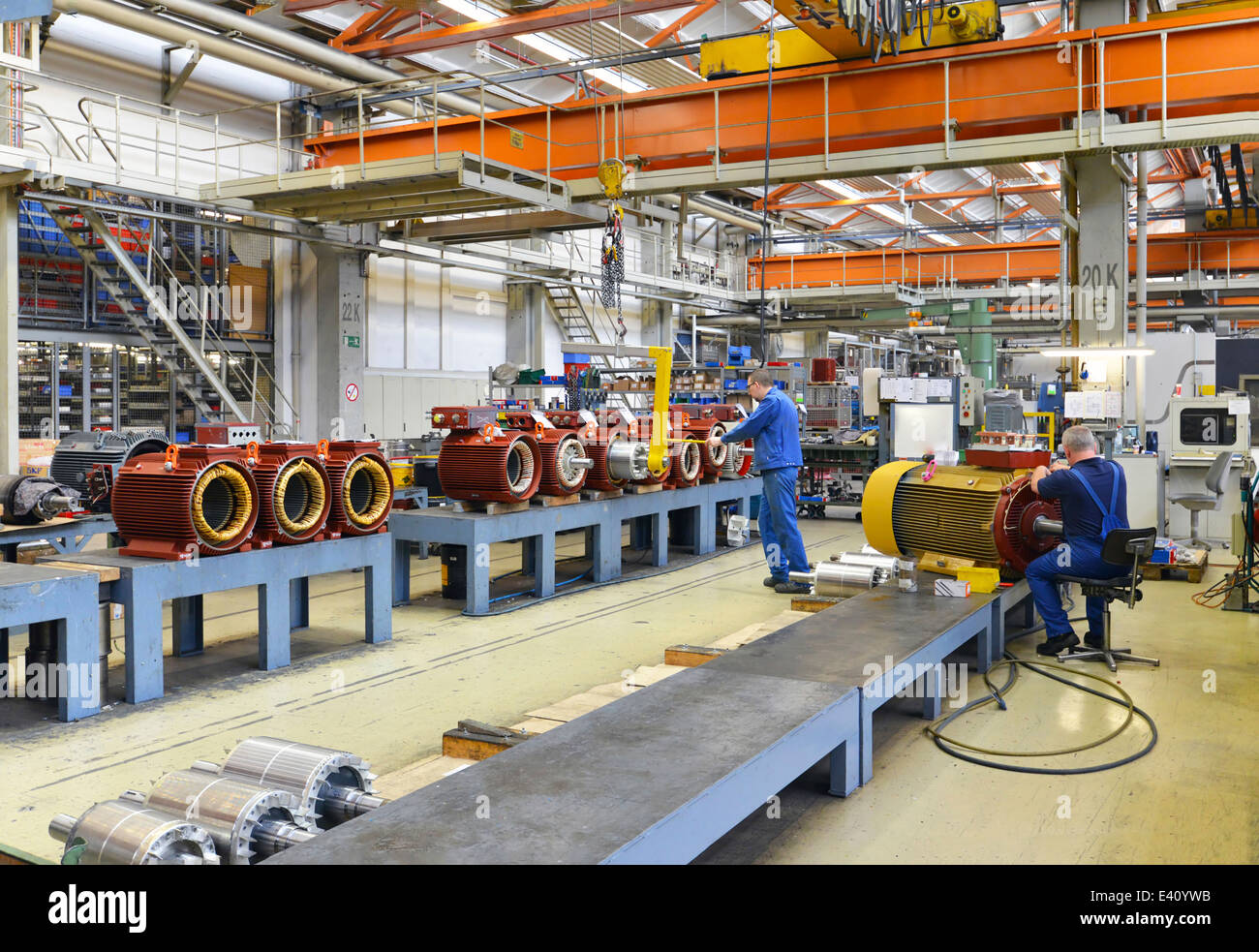Reducing Reliance On China: The Promise Of Domestic Electric Motor Production

Table of Contents
The Current State of Electric Motor Dependence on China
Dominance in the Supply Chain
China's dominance in the electric motor supply chain is undeniable. This stems from their significant market share in rare earth minerals – essential elements for the production of high-performance electric motors. This control translates to a commanding position in the global market, creating significant vulnerabilities for nations heavily reliant on Chinese imports.
- High percentage of global electric motor manufacturing concentrated in China: Estimates suggest that a substantial portion of global electric motor production originates from China, giving them significant leverage in the market.
- China's control over rare earth element mining and processing: China holds a near-monopoly on the mining and processing of several rare earth elements, crucial for powerful and efficient electric motors used in EVs and other applications.
- Risks associated with geopolitical instability and trade disputes: The concentration of electric motor production in China exposes importing nations to risks stemming from geopolitical instability, trade wars, and potential sanctions. Any disruption in the Chinese supply chain can have far-reaching global consequences.
Economic and Security Implications of Dependence
Over-reliance on a single source for such a critical component presents severe economic and national security risks:
- Supply chain disruptions leading to production delays and higher costs: Dependence on Chinese imports leaves nations vulnerable to supply chain disruptions, potentially leading to production delays in the EV sector and significantly increasing costs.
- Potential for manipulation of prices and trade restrictions by China: China's dominant position allows for potential manipulation of prices and the imposition of trade restrictions, negatively impacting importing countries.
- Increased vulnerability to geopolitical pressure and potential for blackmail: This dependence creates a vulnerability to geopolitical pressure and even potential blackmail, undermining national security and economic stability.
The Benefits of Domestic Electric Motor Production
Enhanced Supply Chain Resilience
Shifting electric motor production to domestic sources dramatically strengthens supply chains. This reduces vulnerability to external shocks, geopolitical tensions, and unexpected disruptions:
- Reduced reliance on foreign suppliers, mitigating risks from trade wars or sanctions: Domestic production provides a buffer against trade wars, sanctions, or other geopolitical events that could severely impact imports.
- Faster response times to market demands and changes in supply: Domestic manufacturers can respond more quickly to market fluctuations and changes in demand, ensuring a more reliable supply.
- Improved ability to manage inventory and reduce lead times: Local production streamlines logistics, reduces inventory costs, and shortens lead times, benefiting both manufacturers and consumers.
Economic Growth and Job Creation
Domestic electric motor manufacturing stimulates economic growth and creates numerous high-skilled jobs:
- Stimulates innovation and technological breakthroughs in motor design and efficiency: A domestic industry fosters competition and innovation, leading to advancements in motor design, efficiency, and performance.
- Supports the development of related industries, such as battery production and electric vehicle assembly: The growth of domestic electric motor production creates a ripple effect, boosting related industries and fostering a robust domestic EV ecosystem.
- Attracts foreign investment in advanced manufacturing technologies: A thriving domestic sector becomes an attractive destination for foreign investment in cutting-edge manufacturing technologies.
Environmental Considerations
Domestic production allows for greater control over environmental standards and waste management:
- Implementation of stricter environmental regulations reduces the carbon footprint: Domestic manufacturers can implement and adhere to stricter environmental regulations, reducing the overall carbon footprint of electric motor production.
- Sustainable sourcing of raw materials and responsible waste disposal: Domestic production enables better oversight of the sourcing of raw materials and promotes responsible waste management practices.
- Improved energy efficiency in the manufacturing process: A focus on efficiency in domestic manufacturing processes can contribute to reduced energy consumption and lower greenhouse gas emissions.
Challenges and Opportunities in Domestic Electric Motor Manufacturing
Addressing the Challenges
Transitioning to domestic electric motor production presents challenges:
- Initial high investment costs for establishing manufacturing facilities: Setting up new manufacturing facilities requires substantial upfront investment.
- Need for skilled labor and advanced technological expertise: A skilled workforce and access to advanced technologies are crucial for successful domestic production.
- Competition from established Chinese manufacturers: Competition from established Chinese manufacturers with economies of scale will need to be addressed strategically.
Capitalizing on Opportunities
Despite the challenges, significant opportunities exist:
- Government support through incentives and funding programs: Government initiatives, subsidies, and tax incentives can play a crucial role in supporting the growth of the domestic electric motor industry.
- Collaboration between industry, academia, and research institutions: Collaboration between these sectors fosters innovation and accelerates technological advancements.
- Focus on innovation and the development of cutting-edge technologies: Investing in research and development will ensure that domestic manufacturers remain competitive globally.
Conclusion
Reducing reliance on China for electric motor production is not merely a strategic advantage—it's a necessity. The benefits of strengthening domestic electric motor manufacturing are undeniable, from enhanced supply chain resilience and economic growth to environmental sustainability. By proactively addressing the challenges and capitalizing on the opportunities, nations can build a future where the electric vehicle revolution is powered by robust, independent, and domestically produced electric motors. Let's invest in and accelerate the growth of domestic electric motor production to secure a more resilient and sustainable future. The time to act is now. Let's build a stronger, more secure future through domestic electric motor production.

Featured Posts
-
 Ufc 314 Cancellation Of High Profile Knockout Match
May 04, 2025
Ufc 314 Cancellation Of High Profile Knockout Match
May 04, 2025 -
 Nigel Farage Prefers Snp Win In Next Holyrood Election Reform Partys Stance
May 04, 2025
Nigel Farage Prefers Snp Win In Next Holyrood Election Reform Partys Stance
May 04, 2025 -
 Witnessing The Partial Solar Eclipse Saturdays Event In Nyc
May 04, 2025
Witnessing The Partial Solar Eclipse Saturdays Event In Nyc
May 04, 2025 -
 Lizzos Oscars Appearance A Stunning Weight Loss Reveal
May 04, 2025
Lizzos Oscars Appearance A Stunning Weight Loss Reveal
May 04, 2025 -
 A 390 000 Prize Nelson Dong Wins Apo Main Event
May 04, 2025
A 390 000 Prize Nelson Dong Wins Apo Main Event
May 04, 2025
